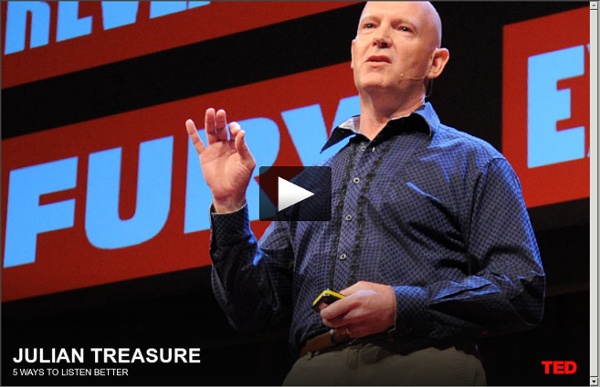



http://www.ted.com/talks/julian_treasure_5_ways_to_listen_better.html
Turning TwentyOne If you’re turning twenty one (21!!) today… May 7, 2011, I’d like to humbly offer you some advice, as your elder of 9 whopping years. I know you’re not asking for advice. I know I’m not an expert at life… I just have a few gems I want you to take with you. One: Raw honey and baking soda make a really lovely face scrub. True. Government 2.0 (August 16, 2011) Thanks to Todd Park, a federal agency has discovered that health care organizations can think more like nimble startups than like lumbering giants. (Illustration by Keith Negley) The great irony of the transformative health care reform legislation passed in 2010 is that although the law promises access to care for 30 million Americans, it relies on an outdated structure woefully ill prepared to serve them. Constrained resources, flawed economics, rising costs—how can a health care system under so much strain survive such an expansion? The answer will be found in creativity. Over time, the most dynamic health care institutions have boosted their creative metabolisms, so to speak, with promising methods for vetting new ideas and technologies.
10 Inspiring Quotes From Our Favorite TEDTalks Are you a fan of TEDTalks? Then you're going to love TED Quotes, a new Allianz-sponsored service that offers "salient bits of TEDTalks, on everything from activism to storytelling, from chemistry to curiosity." "Everyone loves a good quote," June Cohen, the executive producer of TED Media, said in a blog post post announcing the launch. "They challenge us. They change us. They make us think and make us laugh. Reinventing Health Care Services (August 16, 2011) A doctor describes his groundbreaking, transdisciplinary effort to design more cost-effective care models for conditions that drive a large proportion of US health spending. (Illustration by Keith Negley) My professional life has revolved around a single question: How can doctors and other health professionals catalyze big leaps in the quality and affordability of health care? In keeping with the Physician Charter, a modern version of the Hippocratic oath, many physicians are beginning to realize that they have an ethical imperative to promote “the wise and cost-effective management of limited clinical resources”—in addition to the health of patients. This ethical imperative has now become a fiscal imperative if the United States is to avoid what has been described in The New England Journal of Medicine as the “specter of financial Armageddon” for federal and state governments.
TED Conversations in the classroom Can students learn better by sharing what they know? TED Fellow Nina Tandon believes in the power of sharing ideas and using TED Talks in her classroom. In addition to that, she is now using the TED Conversation platform in the Bioelectricity course that she’s currently teaching at Cooper Union in New York City. After hosting her own conversation on TED Conversations, Nina was inspired to use the platform in her classroom and let students take the role of sharing knowledge and leading discussions with the global community.
Plasmonics intensifies a novel nanoscale light source, Stanford engineers find Mark Brongersma The EFISH device greatly increases the power of light passing through it. Not long after the development of the first laser in 1960, scientists discovered that shining a beam through certain crystals produced light of a different color; more specifically, it produced light of exactly twice the frequency of the original. The phenomenon was dubbed second harmonic generation. +330,000 Jobs in 2 Decades from Energy Efficiency Clean Power Published on September 21st, 2011 | by Zachary Shahan Export dollars per job in the clean economy are almost double those in the broader economy. Median wages are nearly 20% higher. Energy efficiency saves us bucket-loads of cash, but it also creates jobs for our fellow Americans (and the money they make goes back into our economy). James Dixon, chairman of the National Association of Energy Service Companies, recently pointed out on Politico that, since 1990, the energy efficiency industry has added 330,000 jobs (I imagine some of you have such jobs).
3 Questions: Faster than light? The news media were abuzz this week with reports of experiments conducted at the Gran Sasso particle detector complex in Italy, apparently showing subatomic particles called neutrinos had traveled from the giant particle accelerator at CERN, outside Geneva, to the Italian detector at a speed just slightly faster than the speed of light — a result that, if correct, would overturn more than a century of accepted physics theory. Professor of Physics Peter Fisher, head of MIT’s Particle and Nuclear Experimental Physics division, answered some questions about these new findings. Q. If this result is confirmed, does it really undermine Einstein’s theory of relativity, as some news reports claim? And if so, is there a theory that’s been proposed that might account for it?